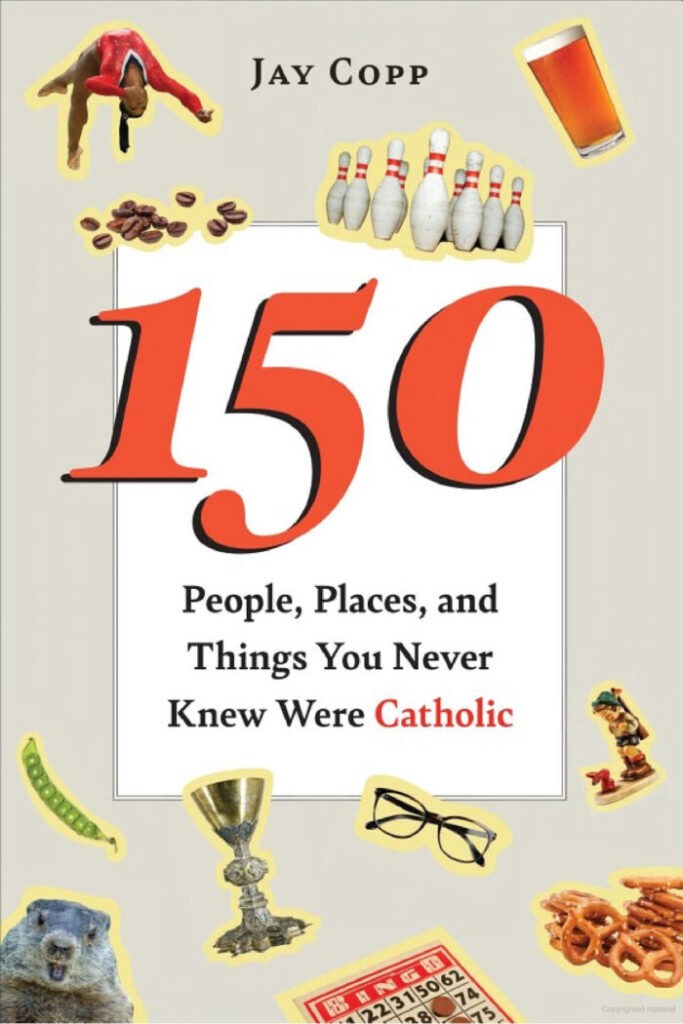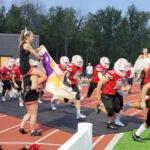
By Tim Walch
Book Review
A review of “150 People, Places, and Things You Never Knew Were Catholic,’ by Jay Copp. Our Sunday Visitor, 254 pages, $24.95

When I was growing up in the 1950s, I lived in something of a Catholic cocoon. Most of my neighbors were Catholic. I attended a Catholic school and could be found at Sunday Mass without fail. I came to think that Catholicism made me unique — even special.
Boy, was I naive! I had no idea that my religious roots were so closely intertwined with many facets of both international and American culture. “Good luck getting through an entire day without experiencing the impact of Catholicism,” writes Jay Copp.
Copp knows what he is talking about. A seasoned journalist and editor, Copp is the author of an intriguing book entitled “150 People, Places, and Things You Never Knew Were Catholic.” It’s a light-hearted, easy-to-read invitation to learn about a faith and a culture that we too often take for granted.
“The fruits of our Catholic faith are all around us,” Copp writes, “and the ways in which the Church has shaped history, and the secular world can be found in science, art, pop culture, sports and more. Our most enduring, and endearing customs, pastimes, practices, and institutions often can be traced back to an inventive, resourceful Catholic.”
Copp teases us with surprising facts. Did you know that a Catholic monk invented the alarm clock? And that the safety of the milk in your cereal bowl is thanks to a Catholic scientist named Louis Pasteur? Even superstitious phrases like “knock on wood” can be traced back to a tradition of using the crucifixion cross to ward off danger.
One of the most interesting of Copp’s observations is the general tendency to isolate Catholicism from the secular world. “That’s diametrically opposed to centuries of history,” he notes. “Many of the most important scientists centuries ago were priests. …Their research and reasoning led to great discoveries and innovations that ushered in our modern world.”
The same can be said of the role that Catholicism played in the development of social, cultural, legal and educational traditions. Our belief in liberty and natural rights comes from the great intellectuals of the Church. Copp quotes St. Augustine: “God provides the wind; man must raise the sail.”
The book begins with food. Interesting stories include the involvement of various Catholics — from popes to monks to scientists — in creating everyday delectables, such as chocolate, coffee, cheese, pretzels, beer, wine and even fruitcake.
In his chapter on science, Copp includes both well-known scientists, such as Copernicus and Pasteur, and less well-known Catholic contributors to the scientific method, the evolution of botany, geology and genetics. He even highlights the role of the Church in developing the model for the “big bang” theory.
Among the Catholic inventions, discoveries and innovations are hospitals and universities, everyday objects such as the mechanical clock, the calendar and even the fax machine.
There are chapters on America, language, writers, sports, popular music and even outer space! Readers of all interests are certain to find multiple topics that will pique their curiosity and teach them a thing or two.
The book ends appropriately with entries on two classic holiday films: “A Charlie Brown Christmas” and “It’s a Wonderful Life.” Although neither is overtly Catholic, both films were produced and directed by men of Catholic faith. So let me be the first in 2024 to wish you a Merry Catholic Christmas and, of course, a wonderful life.
(Timothy Walch is a parishioner of St. Thomas More)











